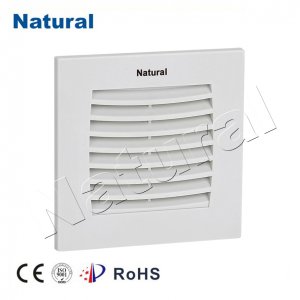In today’s fast-paced world, electricity is the lifeblood that powers our homes, industries, and technologies. Behind the scenes, electrical panels play a crucial role in ensuring a steady and safe supply of electricity. To maintain optimal performance and prolong the lifespan of electrical panels, it’s essential to consider the often-overlooked aspect of fan filters. In this article, we will explore the importance of fan filters for electrical panels and how they contribute to efficiency and reliability.

Understanding Electrical Panels Before delving into the significance of fan filters, it’s important to understand the role of electrical panels. These panels house a complex system of electrical components, including circuit breakers, fuses, switches, and more. Their primary function is to control and distribute electrical power throughout a building or industrial facility. This distribution ensures that electricity reaches various circuits and equipment, enabling them to function properly. The Role of Fan Filters Electrical panels generate heat as a natural byproduct of their operations. Over time, this heat can accumulate and lead to increased operating temperatures within the panel. Excessive heat can damage sensitive electronic components, reduce efficiency, and potentially lead to catastrophic failures. This is where fan filters come into play. Fan filters are specially designed components that serve a dual purpose: Dust and Contaminant Filtration: Fan filters prevent dust, dirt, and other contaminants from entering the electrical panel. Dust can settle on components, impairing their functionality and causing overheating. By filtering out these particles, fan filters help maintain a clean and dust-free environment within the panel. Heat Dissipation: Fan filters include built-in fans or openings to facilitate airflow within the electrical panel. This airflow helps dissipate excess heat generated during operation. Proper cooling is essential for preventing overheating, which can degrade the performance and reliability of electrical components. Benefits of Fan Filters Extended Lifespan: Fan filters promote a cooler operating environment for electrical panels, which can significantly extend the lifespan of components. Prolonged component life translates to reduced maintenance and replacement costs. Enhanced Efficiency: Cooler operating temperatures allow electrical panels to function at peak efficiency. This results in less energy consumption and a more reliable power distribution system. Reduced Downtime: Preventing overheating through effective heat dissipation and contaminant filtration reduces the risk of unexpected downtime due to equipment failures. Improved Safety: Maintaining a clean and cool electrical panel environment enhances safety by reducing the likelihood of electrical fires and component malfunctions. Compliance: Many industries have regulations and standards that require electrical panels to be maintained at certain temperature levels. Fan filters can help ensure compliance with these requirements. Selecting the Right Fan Filters Choosing the appropriate fan filters for your electrical panels is crucial. Consider factors such as panel size, the level of dust and contaminants in the environment, and the required airflow capacity. It’s advisable to consult with experts or manufacturers to ensure you select the most suitable fan filters for your specific needs. Conclusion In the realm of electrical power distribution, fan filters play a pivotal role in maintaining efficiency, reliability, and safety. By filtering out contaminants and promoting optimal cooling, these unassuming components contribute significantly to the longevity of electrical panels and the overall functionality of electrical systems. Regular maintenance, including the inspection and replacement of fan filters when needed, is essential to ensure that your electrical panels continue to perform at their best.